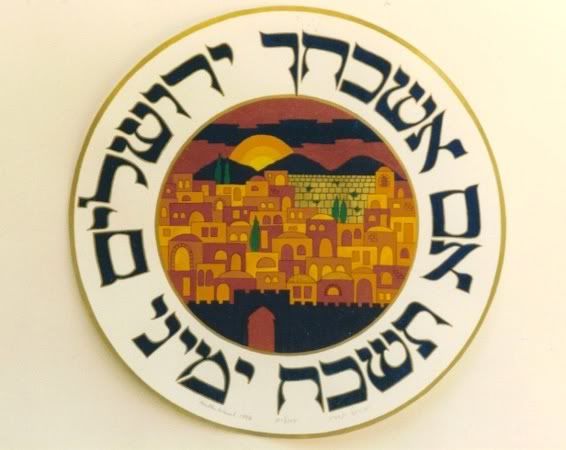This post is copied from The Huffington Post's blog:
When Jimmy Carter used the word "apartheid" in the title of his book, Palestine Peace Not Apartheid, he knew it would deeply offend many Israelis, Jews and other supporters of Israel's efforts to make peace with its Arab neighbors. Yet he deliberately chose that deeply offensive word precisely in order to provoke. As Jeffrey Goldberg of The Washington Post said, it was a case of "bait and switch," since in the text of the book, the word apartheid appears only three times and Carter goes out of his way to explain that what he believe Israel is doing "is unlike in South Africa -- not racism...."It's a little late; okay, a lot late, but I think his observations are right on the money. It's errors of obmission that have plagued Carter's policies since he took the oath of office. Presidents and other politicians, however, are no super-humans they are allowed to make mistakes; but every so often they need to admit to them.Carter was cautioned by friends not to use the inaccurate and provocative word apartheid, but he insisted on putting it in his title, knowing full well how deeply offensive it would be to so many.
Contrast Carter's insensitivity toward his Jewish readers with his extraordinary oversensitivity toward Muslim readers of Salmon Rushdie's controversial book, The Satanic Verses. When Rushdie was sentenced to death in absentia by the Ayatollah Khomeini, and when Khomeini offered "paradise" to anyone who would murder Rushdie, Carter did not leap to the defense of the threatened author. Instead, he condemned him for his "direct insult to the millions of Muslims whose sacred beliefs have been violated and are suffering in restrained silence..." To be sure, Carter recited the obligatory defense of freedom of speech ("while Rushdie's First Amendment freedoms are important ...), and the obligatory criticism of Khomeini ("it is our duty to condemn the threat of murder....), it is clear that his true sympathies lie with the offended Muslims. This is what he wrote in his article entitled "Rushdie's Book Is An Insult:"
"This is the kind of intercultural wound that is difficult to heal. Western leaders should make it clear that in protecting Rushdie's life and civil rights, there is no endorsement of an insult to the sacred beliefs of our Moslem friends.
We must remember that Iranian and other fundamentalists are not the only Moslems involved. Around the world there are millions of others who are waiting for a thoughtful and constructive response to their concerns."Carter was relatively silent when millions of Muslims were on a rampage against the Danish cartoons that depicted Mohammed (some positively, others negatively).
His sensitivity seems limited to Muslims and Christians. This is what he said about the film, The Last Temptation of Christ:
...the sacreligious scenes were still distressing to me and many others who share my faith. There is little doubt that the movie producers and Scorsese, a professed Christian, anticipated adverse public reactions and capitalized on them.Yet Carter fully "anticipated" and "capitalized" on the deliberately offensive title of his best-selling book. Nor do I recall any condemnation by him of Mel Gibson's film, The Passion of the Christ, that was deeply offensive to many Jews.
Jimmy Carter's sensitivities seem to have a gaping hole when it comes to Jews. There is a term for that.
Carter - and I wrote my thesis on his public speeches regarding the Camp David Accords - has never tried to put Israel's interests first. It was always what would Israel give up to get Peace - as if peace was only desired on one side. During the Accords there was a lot of rhetoric tossed around trying to get Sadat to come to the table without looking weak, very little desire to court Begin. Carter never cared about what was good for Israel or the Jews; should we be surprised then that his book only cared for one side and not an honest look for the truth?

3 comments:
In recent weeks, largely in response to the controversy in this country over the Carter book, the word "apartheid" has popped up in Israel's interminable security discussion more often there than it normally does in print. Thus we find Uri Avnery, a veteran of the peace movement, detecting "a strong odor of apartheid" in a military order (since rescinded) forbidding Israeli drivers to give rides to Palestinians on the West Bank; and Shulamit Aloni, the education minister in the last Rabin cabinet, declaring on the Web site of the tabloid Yediot Ahronot that Israel "practices its own, quite violent, form of apartheid with the native Palestinian population."[1] Two clicks on the Web site of the Israeli Committee Against House Demolitions, a small but vocal peace group, brings you to a screen headed "Campaign Against Apartheid," proposing a "Civil Society Call to Action." Israelis using the term "apartheid" in debates that go on mainly in Hebrew provoke a predictably hostile reaction. But that reaction in Israel is ritualized by now, not nearly as fresh in its outrage as the one the former president aroused here by using "apartheid" as a verbal battering ram in order to reopen a debate about the occupation of Palestinian lands—one that Democrats and Republicans, unlike Israelis, outdo each other in shunning.
Source: NY Review of Books
So your point is that Israeli's use the term Apartheid its okay but when Americans use it it provokes a firestorm?
It doesn't really bother me that Israelis are using that word - they're in their legal right to do so, but that doesn't make them any less wrong.
Carter, like many Christians (unfortunately), prefers to think of Jews as characters from his Bible, as opposed to as real-life people worthy of respect like him.
Post a Comment